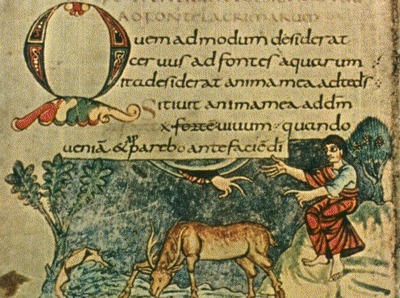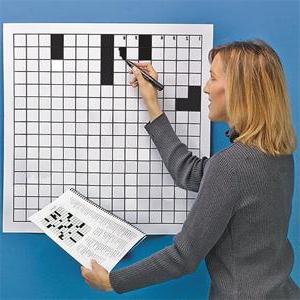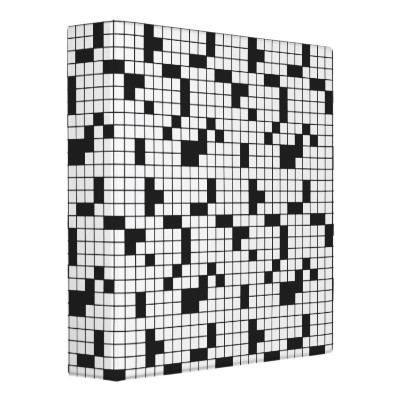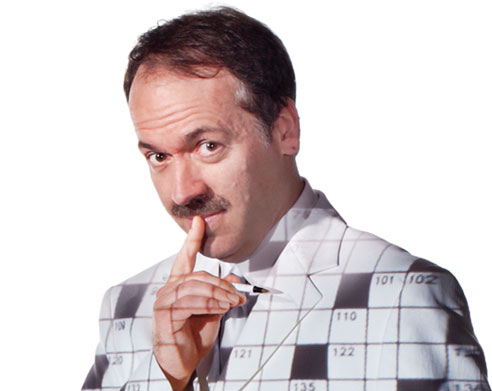

|
| |||||||||||||||||||||||||||||||||||||||||||||||||||||||||||||||||||||||
|
|||||||||||||||||||||||||||||||||||||||||||||||||||||||||||||||||||||||
|
| |||||||||||||||||||||||||||||||||||||||||||||||||||||||||||||||||||||||

for and about crossword puzzle constructors, editors, and publishers
| |||||||||||||||||||||||||||||||||||||||||||||||||||||||||||||||||||||||
|
—note— encomium
Crossword puzzle constructors, editors, and publishers all exist to make it
possible for players to have puzzles to solve.
In their own way, crossword puzzles are an important language art. This
makes constructors, editors, and publishers artists of a sort and
supporters of the arts. On behalf of crossword puzzle solvers everywhere, The Muse Of Language Arts wants to take this opportunity to acknowledge their contributions and to thank them for promoting this art form. Thank you for your good offices; thank you for advancing the art and practice of the crossword puzzle. |
This feature is about crossword puzzle construction. It's also about crossword puzzle constructors, editors, and publishers—what they do and how they do it. But it's not aimed primarily at them.
Constructors, editors, and publishers—the people who create and distribute puzzles—already know what they do; they don't need The Muses to explain it to them. And most solvers, who only want to pick up a puzzle in the kitchen over morning coffee or to dawdle over one in an armchair in front of the TV after dinner, are only mildly curious about how their puzzles reach them.
So, who is this feature aimed at? there is a special breed of solvers—mostly
those who are really serious about solving crosswords—who are
dallying with the idea of making a transition to puzzle construction. Some are wannabes: amateurs, hobbyists, steady
contributors to editors and publishers; some are semi-pros. Some of this
cadre already contribute puzzles to newspapers or magazines in the hope of
getting their brainchildren published; others are successful at it. (Yes,
you can make money at home this way, but don't count on it.)
There is another group of solvers at whom this feature is aimed: those who seek to improve their solution skills. To them we say: Solvers don't have to construct puzzles to enjoy the benefits of solving them, but it helps. They have a lot to gain from understanding at least the rudiments of construction.
For one thing, the easiest way to learn to appreciate construction is to create a puzzle for yourself. There's no better way to discover how difficult it is to put together a puzzle than trying to construct one; it can be a humbling—even humiliating—experience. Constructing and editing puzzles for a hobby or living is no easy task.
There is a third group of solvers at whom this feature is aimed: those who are just getting their feet wet, who are at the dock and about to set sail over troubled waters, who are beginning their sojourn into the world of crosswords. theymay be as sophisticated as all get out, but in one respect they're a little like children; they're curious about everything, and that curiosity extends to the topic of how the other half lives.
If you fall into one of these groups and are new to the subject of construction, you probably will benefit from exploring this feature.

The advent computer programs designed to help solvers solve puzzles has upped the ante. Some of these programs incorporate features that assist solvers to construct; others are designed primarily for puzzle-making. they make it easier for curious solvers and first-time constructors get started, to do-it-yourself. theyhelp solvers produce better puzzles.
Why should solvers confront the challenges of construction if their goal is only to solve? Computer programs for solvers that include construction features not only help with solving; their construction features help solvers become better at solving.
Why should solvers care about construction? Why should they confront the challenges of construction if their goal is only to solve?
The constructor and the solver are engaged in a battle of wits. By thinking about what it takes to create a puzzle, solvers learn to counter the tactics constructors employ to defeat them. The situation is much like combat between opposing generals: the more you know about your opponent's methods, techniques, and tactics—his battle plan—the better able you will be to counter them on the field of battle.
However, studying your enemy's battle plan doesn't guarantee that you will defeat him. Nor will programs that help solvers construct puzzles make a constructor out of anyone by themselves.
The process of constructing a crossword puzzle is the reverse of the process of solving one. Instead of deducing answers from clues the way a solver does, the constructor puts a clue and a matching answer together and tries to fit the answer somewhere in the puzzle's empty white grid squares while making it cross adjacent answers.
If an answer doesn't fit in the empty white grid squares or cross adjacent answers, he adjusts the clue or the answer or both and tries again. He may try to place an answer at more than one grid location. He continues adjusting the clue or its matching answer or both until he comes up with an answer that fits somewhere in the empty white grid squares while crossing adjacent answers. He repeats this procedure, clue by clue, answer by answer, empty grid square by empty grid square, until all answers in the puzzle cross each other and all white grid squares are filled. Then and only then is his puzzle constructed.
Once a crossword grid is chosen for a puzzle it can't be changed; for all practical purposes, it must remain the same throughout construction. A constructor can't change horses in mid-stream, even if he runs into trouble; he can't revise the number of black and white squares or the size and shape of the grid to accommodate new questions and answers he conceives during construction. Revision would upset the way all previously chosen answers fit together and where they're located within the grid.
As with constructing, solving is an iterative process. The solver picks a clue and guesses at a possible answer. If the answer doesn't fit in the the white grid squares or cross adjacent answers, he tries a different answer or he moves on to a different clue. He repeats this procedure until all the answers fit in all the white grid squares while crossing adjacent answers. Then and only then is the puzzle is solved.
Solving isn't easy but it's easier than constructing. Construction is harder than solving because the constructor must create clues and matching answers out of whole cloth; his answers must fit crosswise with adjacent answers; and he must decide where to put each answer in the grid. The solver has it easier because the puzzle is handed to him as a fait accompli. Before he starts, the solver knows the length (number of characters) and location of each answer (the white grid squares where an answer fits). He need only deduce possible answers from clues and check to make sure they cross each other.
In a sense, constructing is a kind of solving. Constructing and solving are both guessing games that are played by trial and error. But constructing is more demanding than solving because it's more complicated. The difference between constructing and solving is analogous to the difference between memory recall and recognition. Constructing is a more complicated process that calls for different, albeit related, skills.
A constructor's knowledge of his puzzle's subject must be vast or his options will be limited when he tries to think of clues and answers that work. He needs to be able to come up with novel subjects, themes, clues, and answers if he is to construct new puzzles that are fresh. He must be clever enough to create witty and entertaining subjects, themes, clues, and answers that will stimulate the solver's imagination and retain his interest. He must have a knack for wordplay. And he must command a large and varied vocabulary.
Just imagine what it must be like for a constructor to meet the demands of construction for a two-dimensional grid like the one that the woman is working on in the picture above on this page. Now try to imagine what it would be like to meet these demands for a three-dimensional grid like the one shown at the right, above.
...Phew!
Alas, not everyone is up to the challenge of constructing puzzles. The majority of people who are good at solving puzzles run up against a brick wall when they try. Constructor's brains seem to be wired in a special way. It's easier for them to accomplish what they set out to do.
The constructor is not the only party to the game. Editors and publishers have a lot to offer, and their jobs are not easy, either.
A crossword editor may be thought of as playing a role similar to the role played by the producer of a movie. The editor has ultimate responsibility for putting together a puzzle that will tickle the fancy of solvers. At the same time, his puzzles must meet publication requirements and constraints before they go to the publisher for final review and distribution. He guides the constructor and in some cases shares or otherwise has a hand in the creation process. He must keep up with production schedules, week after week.
A few of the things an editor does:
A good editor is an accomplished constructor and solver as well.
At the right, Will Shortz, editor of the New York Times crossword puzzle. The Times crossword puzzle feature is one of the most prestigious in the U.S. and Shortz is one of the most prominent and influential crossword editors.
Although crossword puzzles are played by many, only a few seem to have had a major identifiable impact on their evolution; only a few have shaped crossword puzzle design, the way the game is played, or the cultural community.
Certain kinds of personalities seem to be professionally attracted to the field or to seek notoriety as amateurs. Here, you can explore the backgrounds of such individuals:
A crossword puzzle may take a variety of shapes and forms. At the feature called Beginner's Guide To Crossword Puzzle Construction, Electricka and her Muses elucidate some of the rudiments of crossword construction for the most commonly solved type of U.S. crossword puzzle—the square. theyalso offer some construction tips and hints.
Electricka hopes that everyone interested in games, from art devotees to neophytes, will create an original arts-related puzzle or quiz; she invites them to submit their games for publication at her web site.
To encourage visitors to publish their original arts-related puzzles and quizzes, Electricka has declared the Arts Puzzles feature and the Arts Quizzes feature ByLine features. Electricka suggests that you explore the guidelines for these features now.
For more information about this and other Arts Information features, visit the Arts Information page at this web site:
There's no shortage of crossword constructor clubs, how-to guides, tutorials, construction software, and other crossword paraphernalia related to construction. Some of these items are published at web sites; some are distributed online via the Internet; and some take the form of packaged software, books, or other materials. Some are offered at no charge and some come at a price.
Here are a few items chosen at random that you can explore to expand your puzzle-construction horizons and to get you started working:
All constructors, editors, and many publishers are also solvers. Electricka offers a companion feature to For And About Constructors, Editors, And Publishers called For And About Solvers.
|
|
Perhaps the most prominent and interesting of all crossword puzzle tournaments in the U.S. is the American Crossword Puzzle Tournament, founded in 1978. It has met every year since then, plenty if time to develop into a subculture of the world of crossword puzzles in its own right.
If you're a constructor, editor, or publisher, you probably already know about the Tournament; there's a good chance you've competed. Nevertheless, you may want to check this out; it always helps to get a second opinion.
Wordplay is the title of a movie about crossword puzzles which documents the 2005 competition of the American Crossword Puzzle Tournament (see above, this page). It is one of only a few movies about crosswords and the only documentary known to Electricka that offers a vivid peek into the mystically intense subculture that is the world of the crossword puzzle tournament.
As a pro or serious amateur, you undoubtedly know about wordplay; you use it in your work. You probably have already seen the movie; why, you may even have appeared in it! You may want to visit this feature anyway to see what the movie looks like from a muse's point of view.
Electricka and her muses offer you a number of arts-related crossword puzzles to solve online at your computer. Some have been constructed by visitors to Electricka's web site, others by ETAF Staff. All are original. Electricka also offers you a collection other kinds of art-related puzzles and different kinds of games to play online.
Electricka invites you to send her your comments about her puzzles, whether you are a crossword puzzle professional, semi-professional, or talented and serious amateur. She's looking for constructive suggestions from the experts on how to her make arts-related puzzles better.
Make your ideas known:
|
|
Search this web site with Electricka's Search Tool:
tap or click here
Electricka's Theme Products
Shop At Cafe Press
This web site and
its contents are copyrighted by
Decision Consulting Incorporated (DCI).
All rights reserved.
Contact Us
Print This Page
Add
This Page To Your Favorites (type <Ctrl> D)


You may reproduce this page for your personal
use or for non-commercial distribution. All copies must include this
copyright statement.
—Additional
copyright and trademark notices—
| Exploring the Arts Foundation |
 |
| Today's Special Feature |
| Search Now |
| To Do |
| Our Blogs |
| Our Forums | ||
|
|
Resource Shelf |
| Related Pages |
| See Also |
| ByLine |
| ETAF-Amazon |
|
|